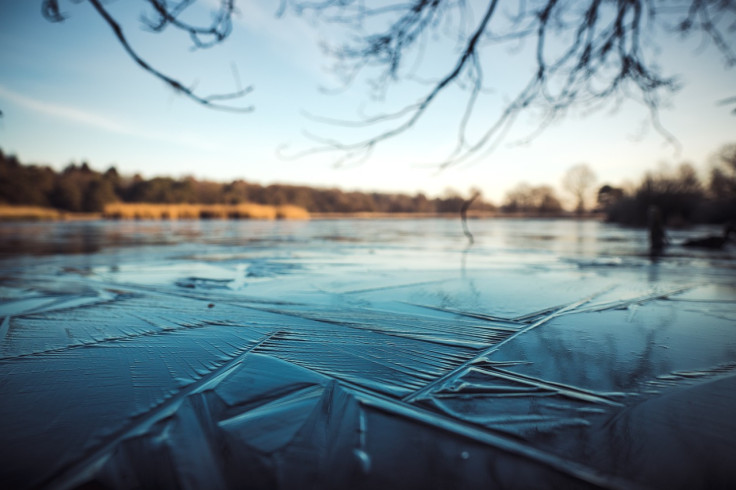3 Men Fall Through Ice And Die In Vermont Lake During 'Abnormally Warm' Weather
Authorities in Vermont have urged locals to avoid engaging in activities in icy water after three fishermen died in just a matter of three days after falling through the frozen Lake Champlain as the state experiences "abnormally warm" weather conditions.
The Vermont Fish and Wildlife Department told people to stay off the ice over the weekend in the wake of the soaring temperatures. Data received by the U.S. National Weather Service Burlington showed the temperature in the area reached 7 to 15 degrees above normal this past week, with the agency speculating the situation will likely persist throughout this week.
"We have seen an abnormally warm first half of February. A trend that will continue at least through this week," NWS wrote on Twitter.
In a Facebook post on Saturday, the National Weather Service Burlington said ice thickness on area lakes and ponds in the region will vary due to "well above normal temperatures" over the past two months.
The first reported death was that of a 62-year-old fisherman, Wayne Alexander, who went fishing in the lake on Thursday and didn't get home at the expected time. A relative went looking for him and found his truck at Grand Isle State Park and called authorities at 8:30 p.m., NPR reported.
Police and locals managed to retrieve Alexander's body about an hour later. The man was found to be wearing a floatation device. He was rushed to a hospital where he was later pronounced dead.
This was followed by the deaths of two brothers John Fleury, 71, and Wayne Fleury, 88, after their utility terrain vehicle fell through the ice at around 7:10 a.m. Wayne was rescued by a diver and pronounced dead at the scene, while John was pulled from the water and rushed to a hospital, where he died later.
The three deaths in short successions have prompted the nixing of the 43rd annual Islands Ice Fishing Derby which was scheduled to be held on Feb.11 and 12, CNN reported.
To make a safe transport through a frozen lake, the required ice thickness for snowmobiles and ATVs is 6 inches while for cars at least 9 inches of thickness is recommended, and for medium-sized trucks at least 12 inches thick ice will be required, as reported by CNN, citing the National Oceanic and Atmospheric Administration.

© Copyright IBTimes 2025. All rights reserved.






















